Photography courtesy of Lowell Washburn, all rights reserved.
This year’s waterfowl production has been excellent across North Central Iowa and broods are abundant wherever you find thick vegetation. Increased water levels and plant growth has also been good for the production of aquatic insects, frogs, toads, and fish. Wading birds are currently capitalizing on the newly expanded fishing opportunities. While hunkered in to photograph wood duck and mallard broods, I spotted a young great blue heron hunting fish.
The gangly juvenile was engaged in a slow motion, step by step, creeping stalk through the wetland shallows. Every now and then, the bird would suddenly stop and stare intently into the water.
When the timing seemed right, the heron would strike out with deadly precision; thrusting its spear tipped head below the surface.
Reappearing with a big glob of sago pondweed in its bill, the bird would methodically shake away the vegetation to briefly display its catch. After getting its prey into proper position, the heron would swallow its snack head first.
It took the heron nearly a half hour to make its way past my position. During that time it made 9 attempts at catching fish. Success was 100 percent; an amazing score for a such a relatively inexperienced bird.

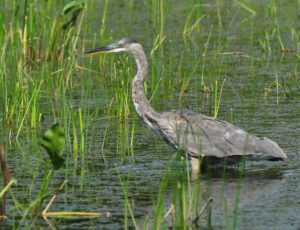
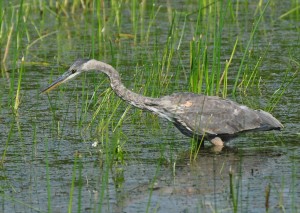
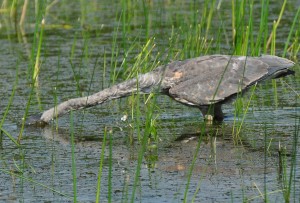
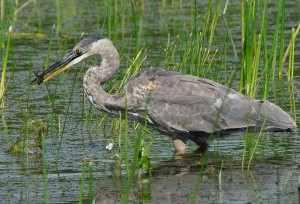
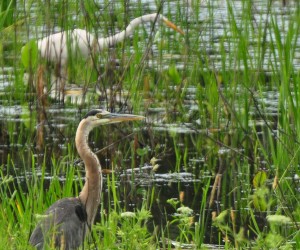
 Susan Judkins Josten
Susan Judkins Josten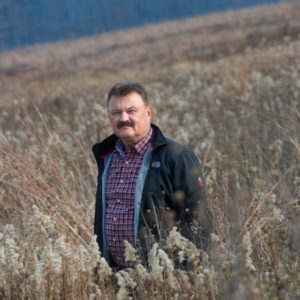 Rudi Roeslein
Rudi Roeslein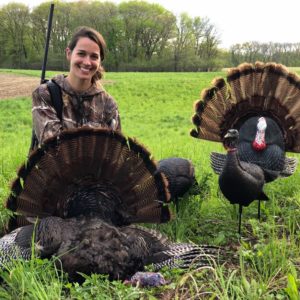 Elyssa McFarland
Elyssa McFarland Mark Langgin
Mark Langgin Adam Janke
Adam Janke Joe Henry
Joe Henry Sue Wilkinson
Sue Wilkinson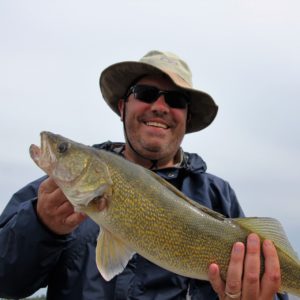 Tom Cope
Tom Cope Kristin Ashenbrenner
Kristin Ashenbrenner Joe Wilkinson
Joe Wilkinson Dr. Tammy Mildenstein
Dr. Tammy Mildenstein Sean McMahon
Sean McMahon